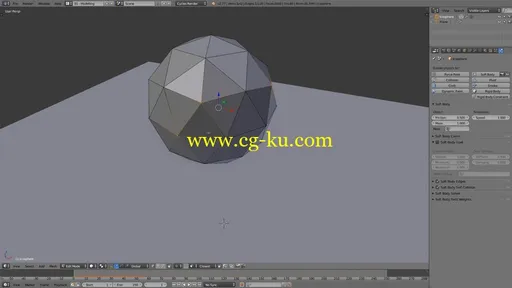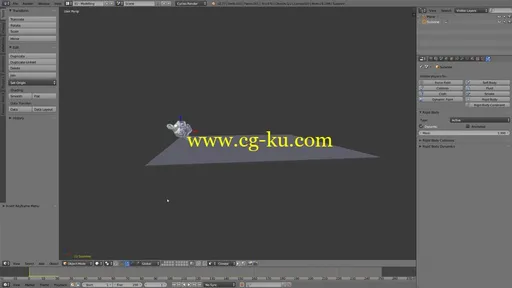
cgcookie - Fundamentals of Dynamics
English | mp4 | H264 1920x1080 | AAC 2 ch | 1 hr 55 min | 1.13 GB
eLearning | Level: Beginner | Software: Blender 2.77
Dynamic Simulation is one of the most “magical” things we can do with Blender. In short, it’s a way to create complex procedural animations that mimic physics.
If you’ve taken a high school math class, you’ll understand that physics calculations require a lot of math. Fortunately, we don’t have to do any math in order to make our models bounce, shatter, splash, and squish – Blender does that math for us! We just give it input materials and Blender does the rest.
In this course we will be taking an introductory look at the nine types of dynamic effects that are available in Blender:
Particles: Dust floating in the air, snow falling from the sky, sparks from a welder, and so much more. This type of effect involves the simulation of large quantities of small bits; i.e. particles.
Hair: Exactly what it sounds like.
Force Fields: Blender objects that mimic real-world forces like gravity, magnetism, vortex, etc.
Rigid Bodies: You know when a Jenga tower falls? It’s like that: The simulation of rigid, non-deforming objects.
Cloth: Also, what it sounds like – The simulation of fabric.
Soft Bodies: In contrast to rigid bodies, this kind of simulation accounts for deformation of objects.
Smoke: The simulation of smoke and fire! Muahaha
Fluid: Liquid simulation like a pipe gushing water for example.
Dynamic Paint: Think of this like writing with your finger on a foggy mirror. This is an interesting simulation genre that interprets object-to-object interaction into surface information like vertex weights.


发布日期: 2016-09-18